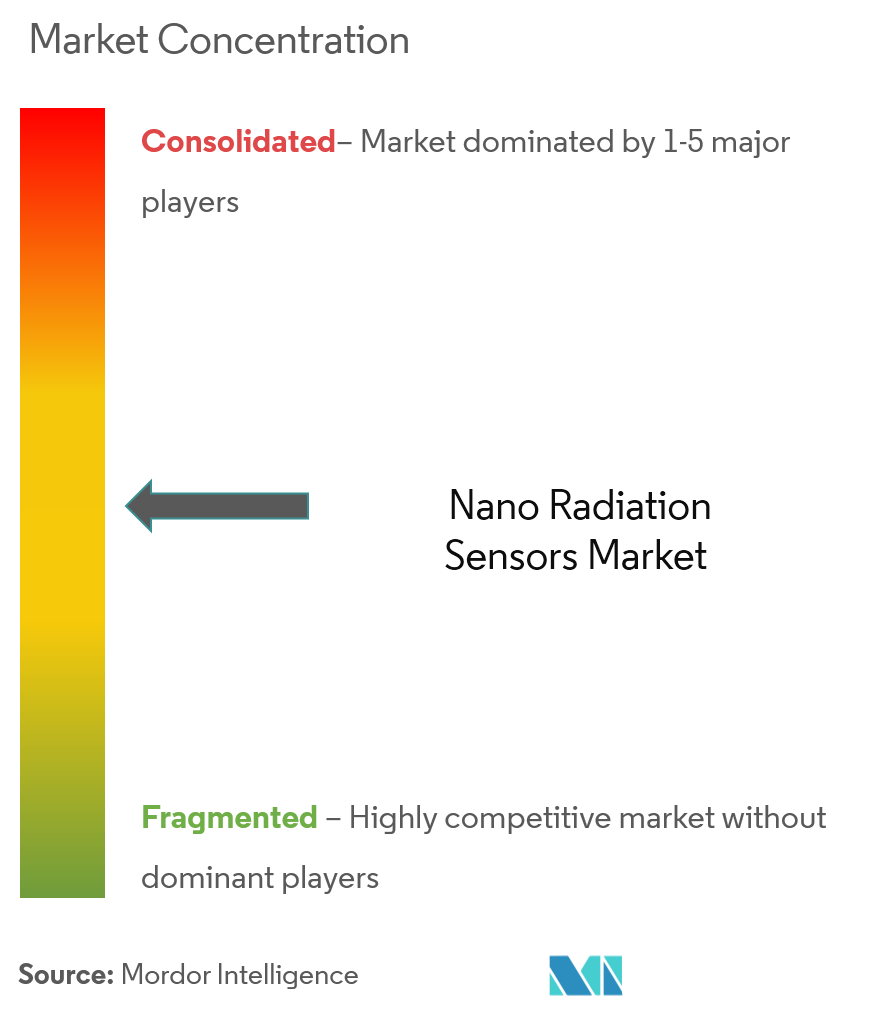Market Share of Nano Radiation Sensors Industry
- The major factors governing this force are sustainable competitive advantage through innovation, levels of market penetration, levels of advertising expense power of competitive strategy, and firm concentration ratio. Currently, nano radiation sensors have limited market penetration, which presents a huge market opportunity for the existing players, as well as the outsiders who are willing to enter the market space.
- However, the existing market players have the advantage of a considerable head start over the new entrants in the market. With great prospects, growing investments, and supportive government initiatives, the competition among the existing players is likely to become high.
- Some of the major players inNano Radiation Sensors Market are Robert Bosch, Honeywell, GE. Some of the key developments inNano Radiation Sensors Market are as follows:
- Analog Devices Inc. announced a new sensor interface IC, which enables the next generation of intelligent electrochemical sensors. The new ADuCM355 combines the high-performance, ultra-low power, small-form-factor, and the advanced feature set is needed to enable the next generation portable gas detectors.
- Thermo Fisher Scientific and Symphogen, a clinical-stage antibody oncology-focused company, entered into a two-year collaborative partnership to deliver validated, platform workflows for simplified characterization and quality monitoring of complex therapeutic proteins.
Nano Radiation Sensors Market Leaders
-
Baker Hughes (General Electric)
-
Robert Bosch GmbH
-
Toshiba Corporation
-
Rae Systems Inc. (Honeywell International Inc.)
-
Thermo Fisher Scientific Inc.
*Disclaimer: Major Players sorted in no particular order


